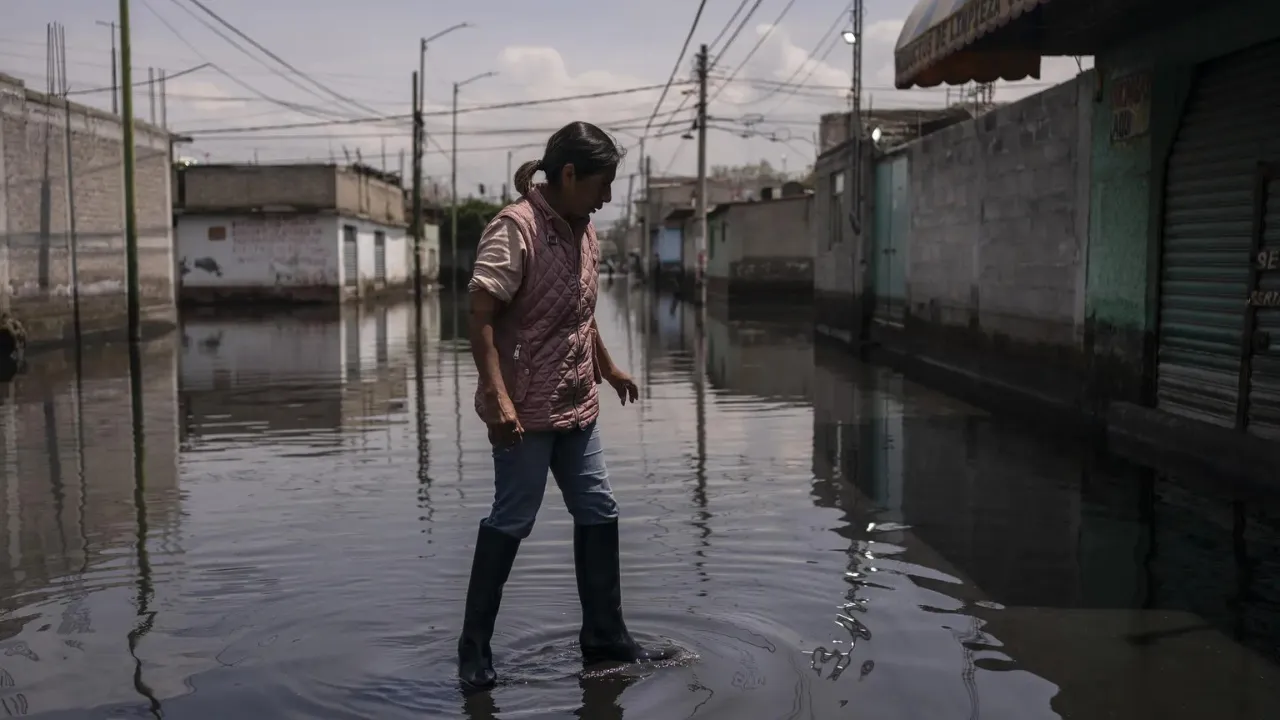Mexico City Floods Cause Health Risks Amid Failing Infrastructure

Mexico City Floods: An Ongoing Crisis
In Chalco, a low-lying area of Mexico City, residents confront a harrowing reality. They have been living amidst black sewage water for over a month due to relentless flooding. The community has been severely impacted by failing infrastructure, with more than 2,000 homes affected and water levels reaching depths of 5 feet (160 centimeters).
Health Risks from Contaminated Water
This situation poses significant health risks. Residents report illnesses linked to the sewage-infused floodwaters, with one mother describing her baby suffering from diarrhea and vomiting.
Government Response and Local Concerns
Local, state, and federal officials have attempted to address the crisis by deploying massive pumps to lower the water level and providing potable water. However, many feel abandoned. A resident voiced frustrations against the government's lack of urgency, emphasizing how politicians are disconnected from the struggles of daily life.
Mexico's President, Andrés Manuel López Obrador, has minimized the situation. His reluctance to visit Chalco raises questions regarding the priority given to these critical infrastructure repairs.
What Lies Ahead?
As residents attempt to restore their lives by clearing debris, the pressing need for improved infrastructure in Mexico City continues to loom large. Without immediate intervention, the risk of waterborne diseases will only escalate.
This article was prepared using information from open sources in accordance with the principles of Ethical Policy. The editorial team is not responsible for absolute accuracy, as it relies on data from the sources referenced.